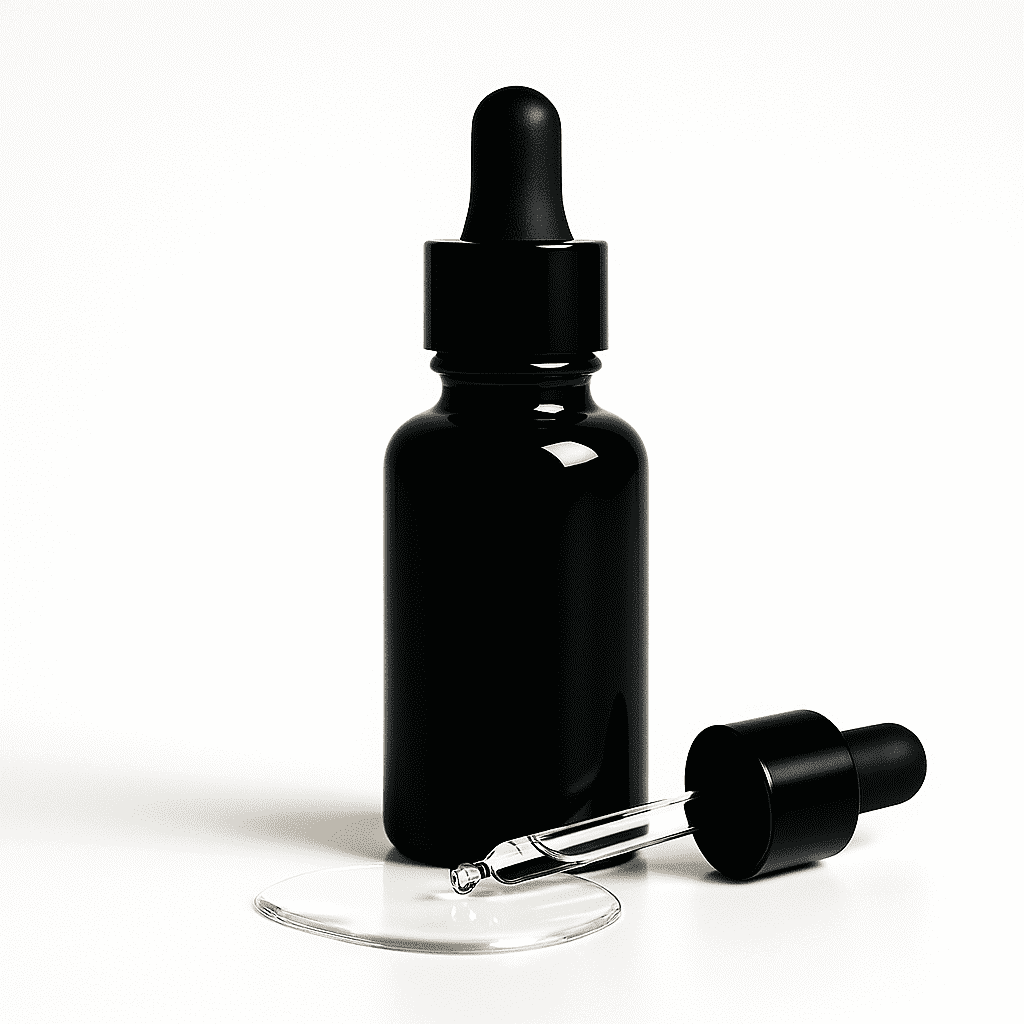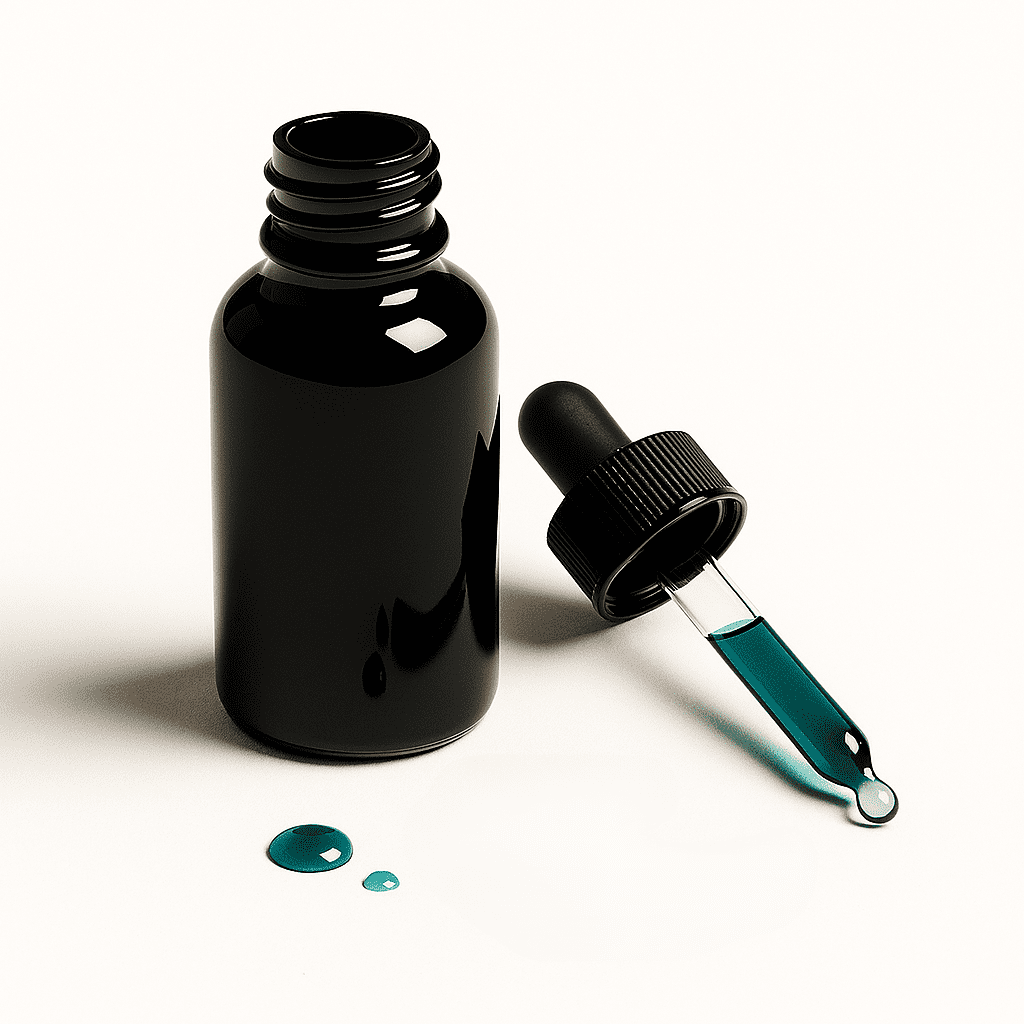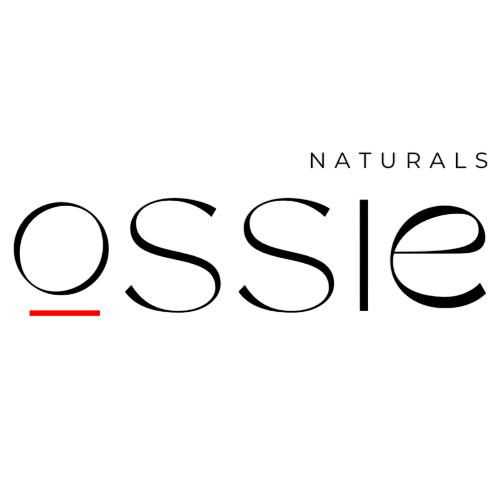FAQs
Frequently Asked Questions

Welcome to Ossie Naturals' FAQ Section
Here to Help You Make Informed Choices
We understand that when it comes to natural personal care, you might have questions. That’s why we’ve gathered our most frequently asked questions to help you learn more about our products, ingredients, practices and more.
The House Philosophy & Craft
What is the founding philosophy of Ossie Naturals?
We are a small Irish skincare house composing bio-compatible balms and oils, handcrafted slowly in small batches in Dungarvan. Our core principle is the Bio-Mimicking Principle: we design formulas that align with the skin’s own architecture, aiming for comfort, softness, and a balanced finish, not theatrics.
Our promise is Quiet care for skin that prefers gentle.
Who crafts the compositions, and where is the work completed?
Every composition is composed and finished by hand in our dedicated workshop in Dungarvan, Ireland. They are made in small, measured runs. This commitment to local, studio-made craft ensures the highest standards. Each piece carries a batch number and is a direct product of the Irish house, honoring the founder’s hands-on practice.
Why is “Time” an active ingredient in your compositions?
Time is the true measure of our craft. Compositions are finished with patience, not haste. We only release a formula when its structure turns quiet: the texture has resolved to its optimal state, the presence is subtle (never heavy or intrusive), and the purpose is intact. This unhurried process ensures every balm and oil is perfectly mature, built for longevity, not speed.
How long will it take to notice a difference in my skin’s balance?
True change occurs at the cellular level and takes time. While the comforting texture is immediate, we advise committing to the ritual for at least 90 days. This duration allows your skin’s natural rhythm and barrier function to fully align with our bio-mimicking compositions, revealing foundational balance, softness, and a lasting luminosity that transcends a temporary fix.
Why does the contact feel immediate and natural on the skin?
We design every formula to mirror the skin’s lipid architecture—the fine matrix that holds cells together. When a composition is lipid-echoing, contact feels familiar, absorption is clean, and comfort stays. Our approach enhances what the skin already knows how to do, supporting a calm, balanced finish rather than forcing penetration.
Why do you use amber glass packaging?
When formulating our products, the vessel matters as much as what it contains. Amber glass represents our commitment to preserving botanical potency and delivering measurable results.
Amber glass blocks 90-95% of UV radiation through iron and sulfur compounds integrated into the glass structure. This selective light filtration prevents photodegradation—the breakdown of active compounds when exposed to light. For formulations rich in antioxidants, essential oils, and botanical extracts, this protection translates directly to maintained efficacy.
Studies demonstrate vitamin C serums in amber glass retain potency three times longer than those in clear containers. Essential oils maintain their therapeutic properties. Botanical extracts preserve their bioactive compounds. This isn’t an aesthetic choice—it’s performance preservation.
Glass is chemically inert. Unlike plastic containers that can leach plasticisers or react with essential oils, glass maintains absolute barrier integrity. No migration, no interaction, no compromise. Your formulation remains exactly as crafted, from first application to last.
The impermeable nature of glass also prevents moisture ingress and oxidation—two primary causes of product degradation. Combined with light protection, this creates optimal preservation conditions for our unrefined, organic ingredients. Extended potency, texture stability, scent preservation, and colour integrity are measurable benefits of our amber glass choice.
Amber glass is infinitely recyclable without quality degradation. Each jar can be repurposed, recycled, or returned to the glass stream indefinitely. This aligns with our commitment to considered production—creating products that perform without environmental compromise.
Composition & Transparency
Are your products truly “Natural,” and what does that mean?
The term “natural” is often misused. For Ossie, “natural” means simple, intelligible composition and uncompromised integrity of the raw materials. Our core balms and serums are composed with 90% or more of the ingredients sourced from unrefined, organic, and raw materials. This ensures your skin receives the full nutrient profile of the botanicals, not just isolated fractions. You will find no synthetic fragrances, artificial foaming agents, or harsh chemical preservatives. We maintain full disclosure of all ingredients and their origins.
Can your balms and oils replace my current multi-step routine?
Our philosophy is founded on reduction: Fewer ingredients, greater impact. Our bio-mimicking compositions are multi-active, designed to deliver foundational nourishment that often allows you to quietly retire multiple steps, such as heavy creams or supplemental serums. Your skin needs simple, nourishing consistency, not complexity.
Why do your cleansers or cleansing balms not produce a rich foam?
We avoid the harsh surfactants (often sulfates) that create showy, excessive foam. These ingredients often disrupt the skin’s natural pH balance, leading to tautness and stripping the natural barrier. Our formulas are designed to cleanse thoroughly while remaining pH-compatible, ensuring the barrier stays intact and the skin feels soft, never stripped.
Are Ossie Naturals compositions suitable for deeply sensitive or blemish-prone skin?
Our founder’s lineage is rooted in crafting for highly reactive skin. We do not offer cures, but our strict bio-compatible approach—using lipid-echoing whole botanicals without synthetic disruptors—is engineered to support a state of profound calm and balance, addressing inflammation at a foundational level.
How can I verify the freshness of my specific batch?
Every composition is prepared in micro-batches and labelled with a specific Batch Code and a Composition Date (or a clear Best Before Date). This dating is our promise of ultimate freshness and transparency into our intimate process. We encourage using your pieces within 6-12 months of purchase to experience peak botanical vitality.
What is your commitment to the purity and sourcing of your essential oils?
We source essential oils only from trusted distillers who provide a full Certificate of Analysis (COA) for every batch. This commitment is paramount because low-quality or adulterated EOs are often the source of irritation. We use only the highest-grade, authentic, and unadulterated extracts, and only at safe, restorative concentrations.
How should I integrate the Bio-Mimicking Balms into my simple two-step ritual?
Our balms are designed as the final, occlusive step. Apply a small, pea-sized amount onto warm palms and press gently onto slightly damp skin. This thin, lipid-echoing veil locks in hydration and supports the barrier. It is best used after cleansing, perhaps after a single serum or oil, to complete a quiet, two-step routine.
You can also follow the instructions on each product page for better application and best results.
Do your balms address signs of ageing, dehydration, or hyperpigmentation?
We compose to support the skin’s inherent repair systems. By delivering a bio-compatible lipid profile, our compositions help improve the look of elasticity and suppleness over time, returning a soft, luminous glow. Our focus is on barrier support and deep, lasting hydration, which are foundational to reducing the appearance of fatigue and dehydration.
What is the role of beeswax and honey in your balms?
Ingredients like beeswax and honey are integral to the traditional lineage and performance of our balms (or soaps). Honey serves as a potent natural humectant, drawing moisture into the skin, while beeswax provides the essential occlusive veil that prevents dehydration without heaviness. We source these components with respect for nature and ethical practices.
Are your products Vegan?
The majority of our formulas are composed of vegetable botanicals, oils, and butters. However, some pieces contain ingredients derived from animals, which are integral to the traditional lineage and texture of those specific items.
These exceptions include Beeswax, Lanolin, Honey, or Tallow (used only in a few select soaps).
We maintain full transparency on every product page and label, allowing you to easily identify items that align with your values.
If you have any specific concerns, we encourage you to review the detailed ingredient list before purchase.
Do your soaps contain Lye (Sodium/Potassium Hydroxide)? Is it safe?
Yes. All true soap requires Lye (NaOH/KOH) to initiate saponification—the chemical reaction that transforms oils into soap molecules and beneficial natural glycerin. During this process, the Lye is fully consumed and neutralised. Our finished, long-cured bars contain zero free NaOH/KOH. The safety is in the transformation, not in the omission.
Why does the packaging mention “naturally occurring allergens”?
Essential oils, while pure, contain various compounds that regulatory bodies require us to declare (e.g., limonene in citrus, linalool in lavender). These are simply natural chemical components found within the pure essential oils we use—they are not synthetic additives. This transparency allows individuals with specific sensitivities to make informed decisions.
What is your policy regarding nut or common food sensitivities?
We use various nut-derived oils and butters (like Shea, Almond, and Kukui) for their superior lipid profiles. If you have a severe allergy (to nuts, coconut, or corn derivatives), we practice full transparency with ingredient labelling. We advise contacting us directly for a concierge consultation to discuss your specific needs before placing an order.
Why do you use RSPO-Certified Palm Oil?
Our provenance with integrity demands that we only source oils from sustainable plantations. We use RSPO-certified sustainable palm oil because it is the most efficient oil crop available. Replacing it would require far more agricultural land, simply shifting the environmental burden. We support truly sustainable production while maintaining the rich, creamy lather of our soaps.
Do your soaps work well with hard or soft water?
Yes. We carefully formulate our soaps to perform excellently across all water conditions. The inclusion of citric acid (a naturally occurring compound) acts as a chelating agent, binding with hard water minerals to prevent soap scum formation. This ensures you experience the same rich lather and consistent performance regardless of your local water quality.
Do you test your products on animals?
Ossie Naturals maintains a strict cruelty-free policy. We never have, and never will, test our products or ingredients on animals.
The Ritual & Access
Why do your compositions have limited, measured runs?
We operate at the Speed of Quality, not mass production. Our commitment to hand-finishing, low-temperature blending, and allowing the structure time to resolve means our output is inherently limited. We prioritize the integrity of the composition over meeting short-term demand, ensuring that every piece is worthy of the Ossie name.
Do you offer a way to sample the collection before committing to a full-size piece?
We understand that committing to a high-value piece requires confidence. We periodically offer a curated Discovery Set of our core balm and oil compositions. These limited-release sets provide a measured introduction to the Ossie ritual and are often reserved for those on our main Waitlist or Private Client list. Please join the contact us for priority access.
How should I store my compositions to maintain their integrity and potency?
To preserve the composition’s stillness and texture, store it away from direct heat and light. Our reliance on natural preservation (and the protection of the violet glass) means keeping the product in a cool, dry place is necessary to maintain its optimal stability and luxurious consistency throughout its life.
How do I purchase products from Ossie Naturals?
We are a small house that composes in measured runs. We operationalise selective access to protect the integrity of our small batches.
Core Icons (Balms/Oils): Access is managed via Request Access or by joining our Waitlist.
Founder’s Reserve (Rare Soaps): These are released via Private Client invitations and timed allocations.
This ensures that access feels considered, not broadcast.
What is your policy if the composition does not suit my skin?
Our concierge service is available to guide you. While we observe stability and compatibility, individual responses are unique. If a product proves unsuitable, please contact us within 14 days. We will discuss the product’s use in your ritual and provide options aligned with the House’s care standards.
Why did my order contain plastic packaging material?
Our standard packaging protocol is plastic-free (cardboard, paper wrap, etc.). If you received plastic bubble wrap or air packs, this is material that we received from our suppliers and have chosen to reuse (upcycle) rather than sending it directly to a landfill. This aligns with our commitment to reduce, reuse, recycle—in that order.
How can I become a stockist?
We welcome partnership enquiries from independent retailers who share our values of craft and restraint. Please contact our wholesale team through our contact form.
What should I do if I experience a skin reaction?
If you experience irritation, discontinue use immediately and rinse the area with cool water for at least 15-20 minutes. If symptoms persist, please contact your healthcare provider. For our records, please contact our team via the form with the product batch details.
Our Story
Life has a way of inspiring us toward excellence through meaningful moments.
For two decades, I’ve worked as an advanced beauty therapist, understanding skin from both clinical and practical perspectives. But Ossie was born from something more personal—the need for skincare that matched my understanding of what skin truly needs.
Every formula begins with a question: how can we make this more effective? Not through marketing claims, but through genuine innovation. We combine traditional botanical wisdom with modern methods, creating products that deliver clinical-level results through artisanal craft.
In our Dungarvan workshop, each batch is composed by hand. We use low-heat infusions to preserve potency. We select each ingredient for its proven benefits. We test everything on ourselves first—if it doesn’t transform our skin, it doesn’t leave our workshop.
Ossie honours two beloved Oscars who taught me that excellence is in the details. In Irish usage, it carries the sense of protective care—which is exactly what we provide. Not just products, but a complete understanding of your skin’s needs.
This is personal. Every jar carries our commitment to performance without compromise.

We empower your skin to thrive.
Newsletter
Be among the few who know. Allocation notices, early access, and occasional notes on craft and caring for your skin.
We value your trust when sharing your personal data with us. We always treat your data in a fair and respectful manner, limited to the purpose mentioned above. If you would like to know more about how we handle your data, please read our Privacy Policy.
